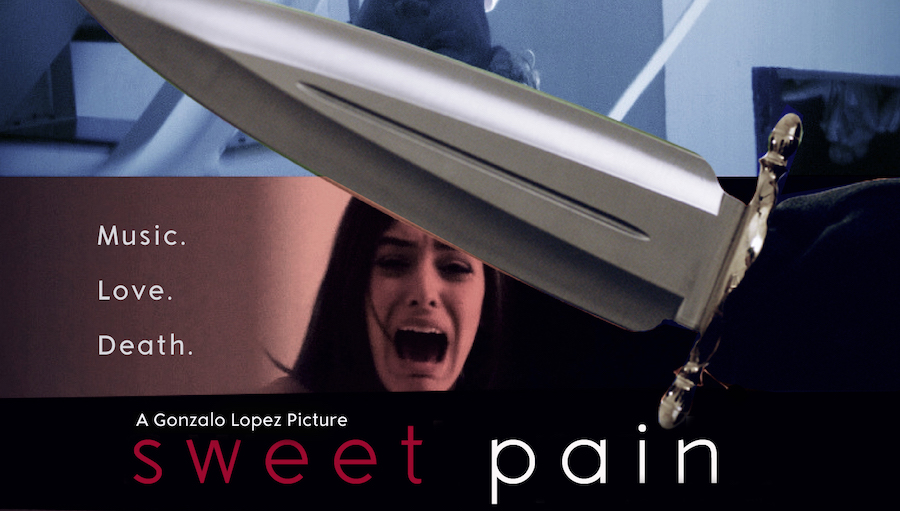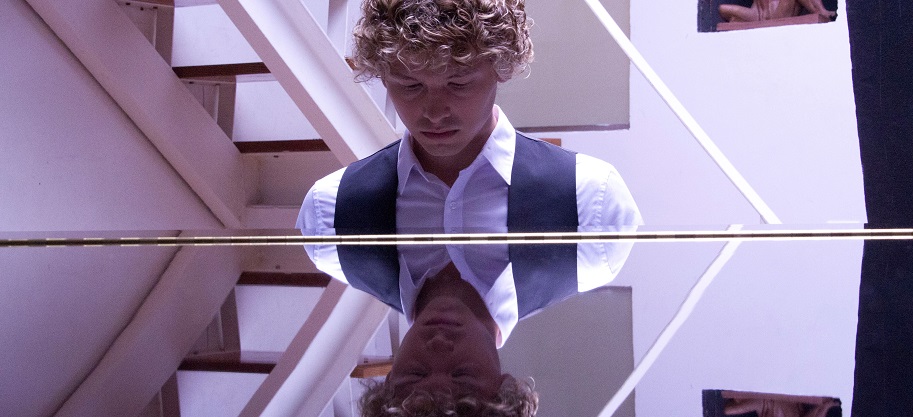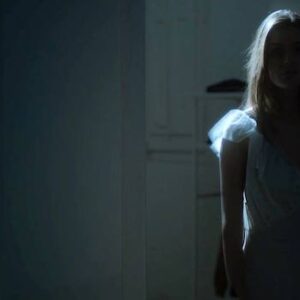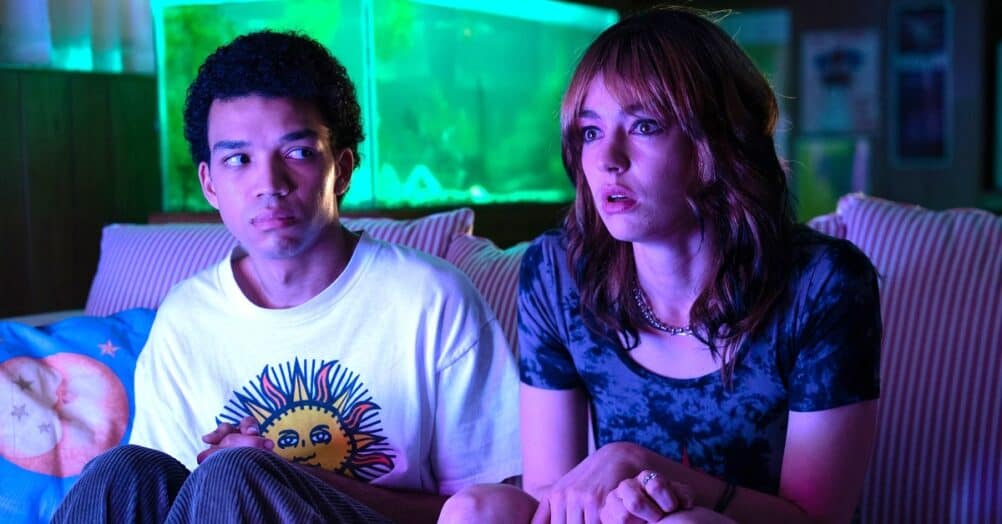Last Updated on July 30, 2021

PLOT: When young piano composer Carlo Gesualdo discovers his wife Maria is having an affair, he crafts a meticulous revenge plot that may or may not end in coldblooded murder.
REVIEW: A decade after helming his feature debut, EMBRION, and since cutting his teeth on a pair of shorts in the interim, Spanish auteur Gonzalo Lopez has dished up quite the bracing acquired-taste delicacy with his new Giallo-inspired platter DOLOROSA GIOIA aka SWEET PAIN which is co- produced by our very own John Fallon aka The Arrow.. Indeed, this challengingly unique, dialogue-free exercise in impeccable style and measured precision is essentially a modern-day biographical retelling of Italian composer Carlo Gesualdo. For those unfamiliar with Gesualdo’s tragic history may actually require brushing up beforehand in order to contextualize and fully grasp the story. Otherwise, you might feel a bit disconnected. A good starting point of reference would be Werner Herzog’s 1995 documentary GESUALDO: DEATH FOR FIVE VOICES, which, at the very least, would play as a fascinating double-feature with DOLOROSA GIOIA, the latter title of which is named after one of Gesualdo’s most famous musical compositions. Now, to be very clear, this movie will not appeal to everyone, as it requires a high amount of patience and attentive fixity. But for those who willingly favor a peerlessly demanding cinematic experience, DOLOROSA will reward you with fine small-scale filmmaking in its purest form!

Setting the aesthetic from the opening, the film begins in an immaculate upscale Italian apartment. Carlo Gesualdo (Amiran Winter) is a rakish young pianist consorting among some contemporaries during a small gathering. Dialogue is spoken in the movie, but never audible to the audience, instead a profusion of gorgeously composed piano arrangements back-drop the entire production. Carlo spots a gorgeous young woman from across the woman, immediately approaches her and hits it off. This is Carlo’s future first wife, Donna Maria D’Avalos (Paula Celieres), and a carnally charged bond between the two is immediately forged. When Carlo isn’t working on new compositions at the piano, he’s lewdly and lustily rolling in the sheets with Donna Maria during every waking moment. And when he’s not in the throes of sweaty passion, he’s fantasizing about past and future imbroglios with his new mate. All seems so swell. But the honeymoon period fades one day when Carlo learns Maria is having an affair with a dashing young man named Fabrizio Carafa (Christian Monasterio), a fact he was unaware of for two whole years. Incredulous at first, Carlo undergoes a recon-mission to ascertain his wife’s infidelity, maddeningly witnessing Donna Maria and Carafa making love incessantly from dusk to dawn. Once confirmed, Carlo enlists the help of pal Alberto Neri (Albert Nualart) to commit an unthinkably grisly crime of passion.
What instantly impresses about DOLOROSA is how pristine and immaculate the production design and camerawork is. The high-artistic flourishes that Lopez employs is striking in its elegance, the aesthetic of which is echoed perfectly in the highbrow musical arrangements that stands in the place of dialogue to convey its various emotions. There’s a boldly intoxicating moxie about Lopez’s decision to tell a dialogue-free story and precision to largely pull it off. In a strange way, the film is even more immersive than your typical dialogue-laden feature, as Lopez demands our utmost attention to remain focused on every little visual clue, be it a wayward glance from a character, tracking a person across the street, or merely watching how Carlo negotiates the space inside his apartment while his mind races with homicidal thoughts. It’s a bold and bravura brushstroke by Lopez, and one that oddly compels viewers to invest their concentration in the imagery far more than in a film where expositional speech does much of the work. It’s a taxing exercise, to be sure, but one that never feels like a laborious chore so much as a piece of genuinely thrilling gamesmanship that the viewer is actively complicit in. Honestly, the immersion reaches a point around the hour mark that you all but forget we haven’t heard a stitch of dialogue, and that Lopez still manages to enrapture us with crystal clear chain of events, is a major testament to his filmmaking acumen and ability to tell a story in the purest form imaginable. Cinema is a show-me-not-tell-me medium, and by this measure, Lopez has delivered a fulsomely wholesome movie that harkens back to the essence of silent filmmaking.

Even for as lewd and lascivious the film is, the carnality is done with certain taste and class that is commensurate with the high-art sensibilities. That is, there is no gratuitous nudity (save for Monasterio’s ass) or exploitive pornography cheapening the product as it unfurls. The violence is another matter, which is diametrically depicted with a brutally graphic mien that comes as quite a shock and awing moment. No, the biggest issue with DOLOROSA GIOIA is that, at a breezy 73 minutes, it at once feels too long for a short film and too slight for a full feature. Part of this is due to a few slow spots in the middle of the movie, most of which consist of Carlo staring off into space for inordinate durations. I get that we’re watching the man think, plot, plan and scheme his way for revenge, but some of these instances drag on a bit too long and place the film in the precarious place of no-man’s-land between a feature and short film. Still, this is a minor gripe, as the tight-wire Lopez tactfully tiptoes across remains tauter the shorter it stretches out.
In the end, DOLOROSA GIOIA is a brazenly stylish and challenging Giallo-inspired thriller based on a true crime story from more than 400 years ago. It’s worth seeing for everyone interested in pure-form filmmaking, anyone fascinated by the tragic tale of Carlo Gesualdo, and most certainly for fans of Giallo flicks that eerily blend high-artistry with moral depravity. It’ll reward those willing to take a chance on it!





















Follow the JOBLO MOVIE NETWORK
Follow us on YOUTUBE
Follow ARROW IN THE HEAD
Follow AITH on YOUTUBE